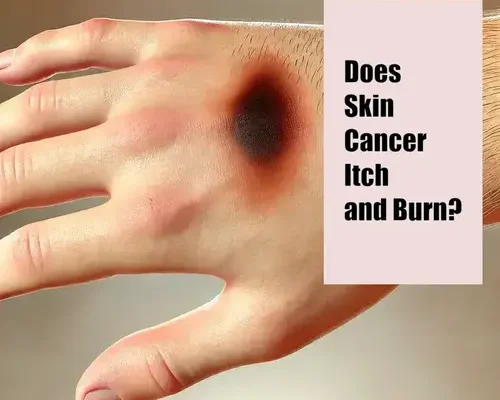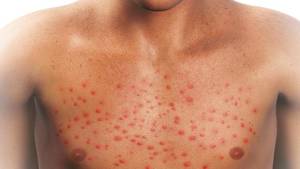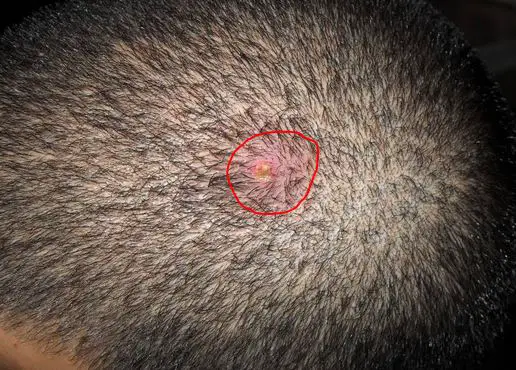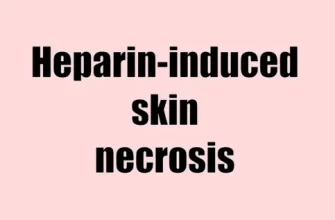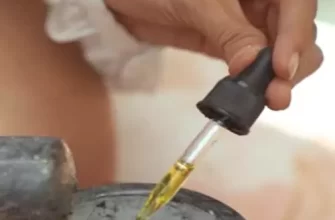Let’s talk about Margaret, a 45-year-old who spends most of her days in the comfort of her home, enjoying quiet hobbies and a bit of light exercise on her stationary bike. One evening, as she was reading, she noticed a small patch on her arm that had been itching for a while. She brushed it off as dry skin. But soon, that mild itch became a persistent, slightly burning sensation. Curious and a little concerned, Margaret began to wonder: Could this be something more serious, like skin cancer?
Symptom Breakdown: Can Skin Cancer Really Itch or Burn?
Surprisingly, yes! Although itching and burning aren’t always the most common symptoms of skin cancer, they can definitely show up, especially in specific types. So, what should you look out for?
- Persistent Itching: If a mole or patch of skin won’t stop itching, it’s not just annoying—it might be a sign that something isn’t quite right.
- Burning Sensation: Sometimes, skin cancer can cause an uncomfortable stinging or burning feeling, especially if the cancerous cells are causing irritation in the surrounding tissues.
- Other Symptoms to Watch For:
- A mole that changes shape or color.
- A lesion or patch of skin that doesn’t heal.
- Redness or inflammation around the area.
Diagnostic Path: What Could Be Going On?
If you notice that a patch of skin is itching or burning and suspect something might be wrong, it’s time to get it checked. Here’s what might happen at your dermatologist’s office:
- Skin Examination:
The doctor will carefully inspect the area, checking for irregular moles, spots, or changes in the skin that could indicate skin cancer. - Dermatoscope:
A special tool that magnifies the skin, allowing the doctor to see if there are any concerning changes that are too subtle to detect with the naked eye. - Biopsy:
If needed, a small sample of skin may be taken and analyzed to confirm whether the area is cancerous.
Deep Dive: Types of Skin Cancer That Can Cause Itching and Burning
Not all skin cancers are created equal. Here’s a table to help break down which types of skin cancer can cause those pesky sensations:
| Type of Skin Cancer | Common Symptoms | Areas Typically Affected |
|---|---|---|
| Basal Cell Carcinoma | Red, shiny bumps; sores that may crust or bleed | Head, neck, arms |
| Squamous Cell Carcinoma | Rough, scaly patches that may itch or burn | Face, hands, chest |
| Melanoma | Irregular moles, sometimes itchy or painful | Legs, back, arms |
Treatment Comparison: What Are the Options?
If skin cancer is the culprit, there are various treatments available. Here’s a look at what can be done to stop the itching and burning for good:
- Surgical Removal:
The most common method for removing cancerous growths is surgical excision. The doctor will carefully cut out the cancerous tissue, often along with some surrounding healthy tissue to ensure all the cancer cells are gone. - Cryotherapy:
For smaller or less invasive cancers, freezing the cancerous tissue with liquid nitrogen can be an effective way to destroy the abnormal cells. - Topical Treatments:
For superficial skin cancers, prescription creams may be used to eliminate cancer cells without invasive surgery. - Radiation Therapy:
In more advanced cases, targeted radiation can help destroy cancerous cells without needing surgical intervention.
Outcome Story: Margaret’s Path to Peace of Mind
After a few weeks of wondering, Margaret finally decided to visit her dermatologist. A biopsy confirmed that the itchy patch was indeed an early form of squamous cell carcinoma. Fortunately, the cancer was caught early, and a quick surgical procedure removed the growth completely. Margaret now stays vigilant, always checking her skin for changes, and feels at ease knowing she caught the issue before it became more serious.
Don’t Ignore the Itch or Burn
An itch or a slight burning sensation may seem like a minor annoyance, but when it sticks around, it could be a sign of skin cancer. If you notice persistent itching, burning, or any other changes in your skin, don’t hesitate—see a dermatologist. Early detection is key to effective treatment and peace of mind.

